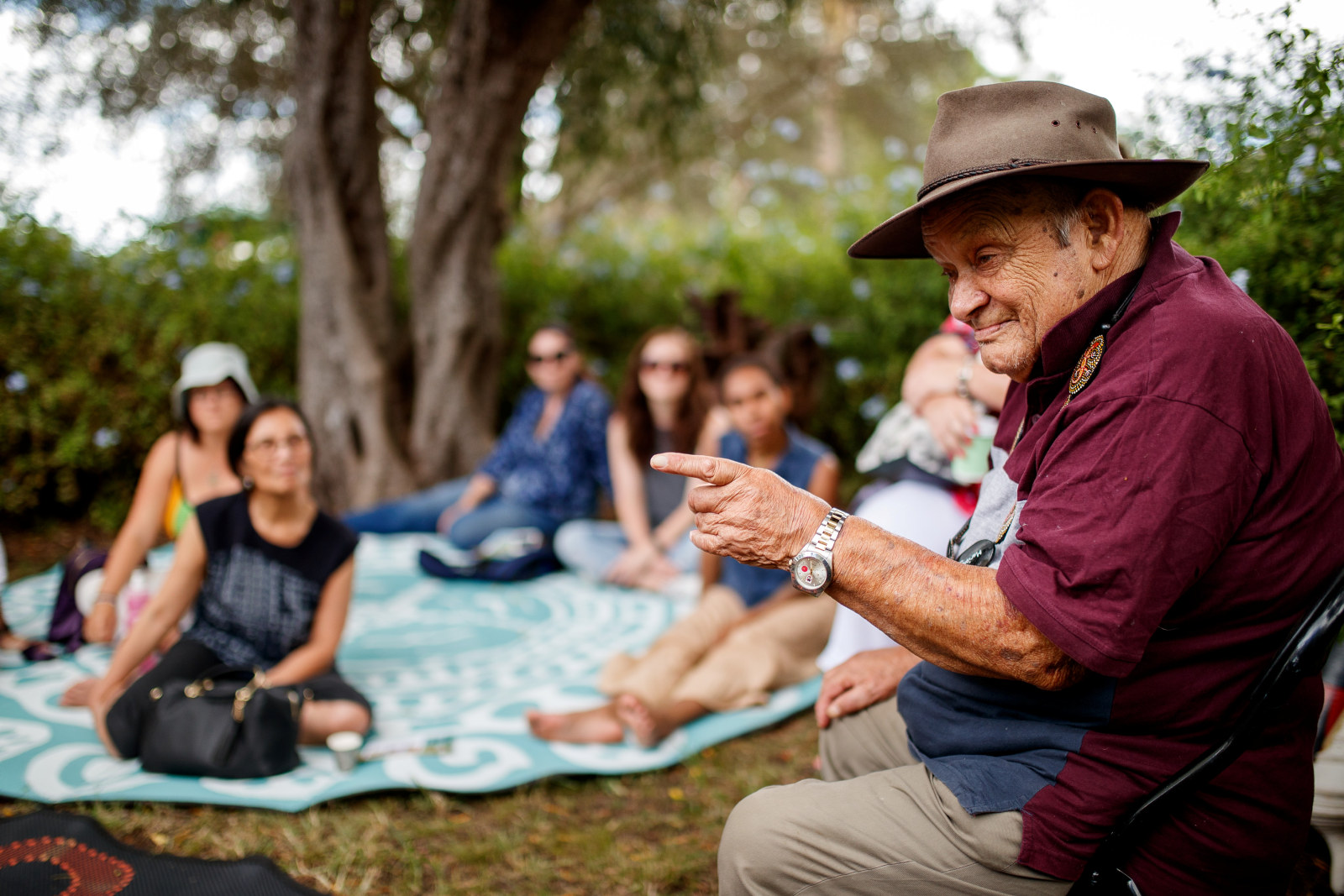Always was, always will be
The phrase ‘Was, is and always will be Aboriginal land’ is how Museums of History NSW acknowledges the traditional custodians of the lands now known as New South Wales and pays respect to the continuing strength and resilience of First Nations people and cultures.
It draws inspiration from the original phrase ‘Always was, always will be’, which emerged from the Aboriginal land rights movement in Far West NSW during the 1980s. This phrase was articulated by Uncle William Bates, a Barkandji leader who emphasised the perpetual Aboriginal ownership of the land. Uncle Jim Bates, his father, succinctly responded to notions of land ownership by asserting that it ‘always was, and always will be, Aboriginal land’.
To many people nowadays, ‘Always was, always will be’ is not just a phrase, it’s a testament to truth. It is a mantra that symbolises the enduring connection and custodianship First Nations peoples have maintained with the land since time immemorial, countering the concept of terra nullius – land belonging to no-one. It’s a rallying cry during protests, affirming Aboriginal sovereignty and challenging systemic injustices.
For Museums of History NSW, the phrase is a constant reminder for us of our commitment to First Nations people and of the core principles that we observe in relating to First Nations people: of First Nations first, being proactive, deep listening, and always seeking and speaking truths.
Peter White
Head of First Nations Cultural Engagement
Peter White is a Gamilaroi Murri from north-west NSW who has held a number of senior positions in major cultural institutions and government arts agencies. Peter has been a freelance adviser on First Peoples’ cultural and creative development. Peter is now Head of First Nations Cultural Engagement.
